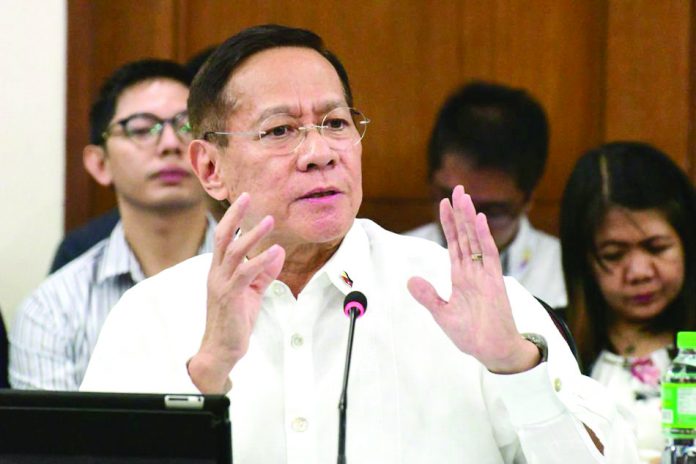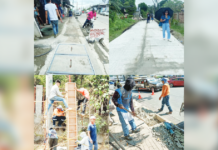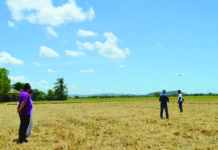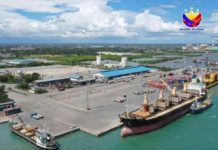
ILOILO – “Paano kung hindi pala dengue, zika pala, then binigyan mo ng Dengvaxia?” asked Health secretary Francisco Duque.
Before the Dengvaxia anti-dengue vaccine is made available to the public again, there must be a “specific test” for the presence of the dengue virus in a patient, stressed Duque.
He was reacting to former Health secretary Janette Garin’s call for the return of Dengvaxia to the market following the Department of Health’s (DOH) issuance of a nationwide dengue alert.
While available dengue tests have more than 90 percent sensitivity, these are “not very specific,” said Duque.
“Specificity of test means it is the dengue virus that is really being detected,” he explained.
The current tests also pick up chikungunya and zika viruses that, like dengue, are also being transmitted by mosquitoes, according to Duque.
DOH banned Dengvaxia early this year. Sanofi Pasteur, the French pharmaceutical company that manufactured the vaccine, advised against giving it to patients with no prior dengue infection, saying it may increase their risk of hospitalization for severe dengue.
“Akala mo dengue case sia pero chikungunya or zika pala. Tapos binigyan mo ng Dengvaxia, o ‘di balik tayo sa dating problema,” said Duque.
Dengue is an acute viral infection that affects infants, young children and adults. It is transmitted by day-biting mosquitoes that live and breed in clear, stagnant water.
The Health secretary also said the protection rate of Dengvaxia is only 60 percent to 65 percent.
On Thursday, Garin, now congresswoman of Iloilo’s 1st District, urged DOH to “listen to real experts” and make Dengvaxia available once more.
“These dengue outbreaks or epidemics have long been predicted. In 2010, WHO [World Health Organization] declared dengue as a disease of pandemic potential, classified as a public health emergency,” said Garin, a doctor.
“Ang pagtaas ng dengue could have been reduced by the vaccine similar to what has happened to Brazil,” said Garin.
Nevertheless, Garin said, it is already “useless” to blame the dengue outbreak on “fake public health news.”
“Nandyan na ‘yan...Now is the time for DOH to listen to real experts, follow international guidelines and make essential medicines and vaccines available to those who need it,” she stressed.
Garin was among those who charged over Dengvaxia, which allegedly posed health risks to more than 700,000 school children who were administered the vaccine.
Dengvaxia was introduced to the Philippine public health system in the early part of 2016 during the administration of then President Benigno Aquino III. Garin was then the DOH chief and oversaw the department’s mass dengue vaccination program in public schools targeting pupils that were at least nine years old.
The public dengue immunization was initially carried out in three highly dengue endemic regions (Regions 3 and 4-A and National Capital Region) with some 700,000 individuals receiving at least one dose of the vaccine in 2016.
In 2017 DOH now under Duque suspended the dengue vaccination program after Sanofi said Dengvaxia works as expected in people already exposed to the dengue virus; but in those who haven’t, the vaccination is linked to an elevated risk of severe dengue.
Dengvaxia, approved for use in individuals from nine to 45 years of age, is the first vaccine in the world licensed for the prevention of dengue./PN




Sec Doque doctor ka ba please answer your question. If Zika and not Dengue can you do the vancine. The doctor must know it if Zika or Dengue. Please don’t’ act like a mor on.